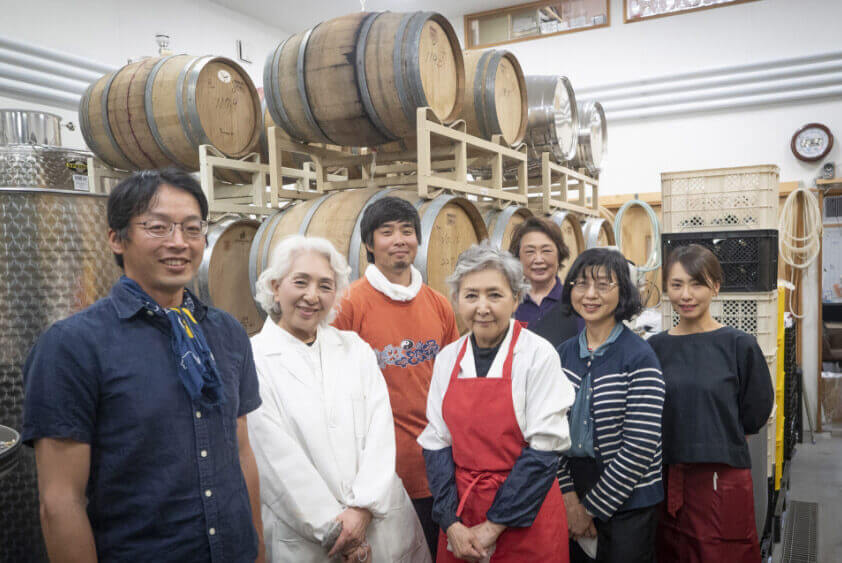Story
My 3 o’clock snack was grapes.
My 3 o’clock snack was grapes.
I was born and raised in Sapporo. I used to live in Chuo-ku and Toyohira-ku. There used to be a station on the Jozankei Railway, and my family lived very close to it. My parents would often take me on the train whenever I got bored, and it was like my playground. I often went to Jozankei.
Jozankei Railway used to connect central Sapporo with Jozankei Onsen. The number of passengers increased with the development of Jozankei Onsen, but it was discontinued in 1969 and replaced by buses. The only building of the old station, Ishikiriyama Station, still exists in Ishiyama, Minami Ward. Jozankei Tetsudo is now called “Jotetsu Corporation”.
My father was in the butcher business and a meat wholesaler. He was not very strong and liked to grow vegetables, partly for his own health. He even bought a plot of land in the suburbs for that purpose. I asked him to plant my favorite grapes there. I think it was around the time when I entered elementary school. There were grape trellis, and I looked forward to seeing the grapes grow every year. For some reason, I liked grapes most among fruits. I love traditional grapes with seeds, such as Niagara and Campbell grapes, which have been around in Hokkaido for a long time. They are sour when chewed, so I swallow the seeds whole.
Hokkaido is the sixth largest producer of grapes in Japan, following Yamanashi and Nagano. Most varieties are eaten fresh, such as Niagara, Campbell, and Steuben, but in recent years the cultivation of grapes for wine has also increased. Large grapes such as Kyoho and Shine Muscat, which were once said to be impossible to grow in Hokkaido, are now being produced.
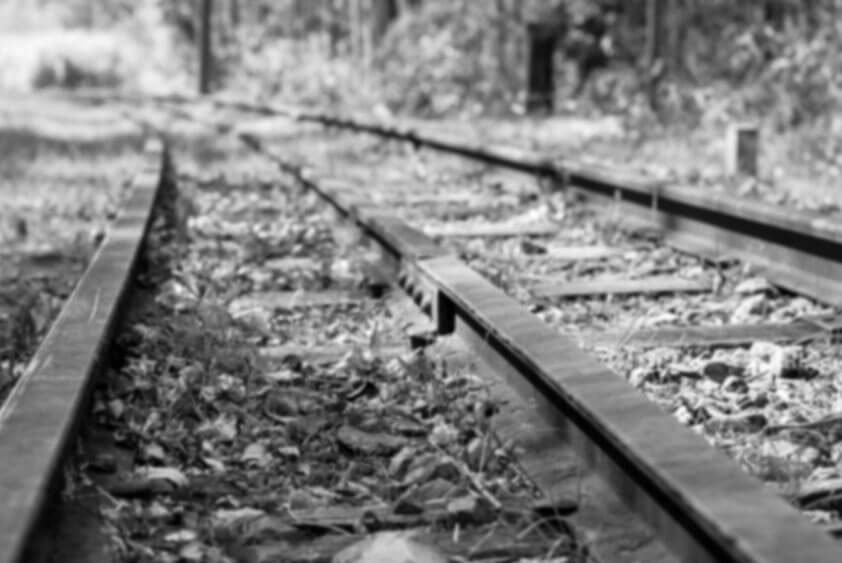
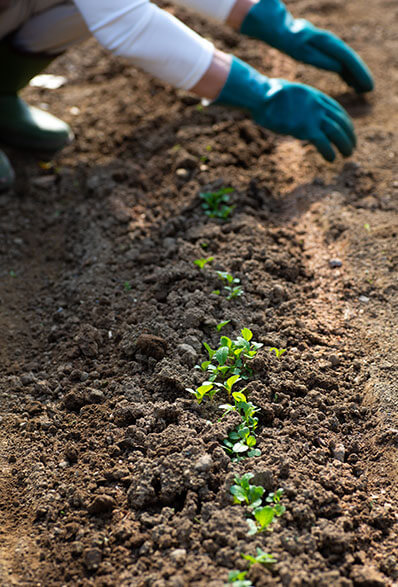
I have three siblings: myself, my younger brother, and my younger sister. My younger sister and brother drink a lot, but I cannot drink much. I get sleepy after drinking about half a glass.
My brother and his wife used to drink wine together. One day I said to him, “I will make wine by myself..” My brother said, “Oh, really?” My brother became physically ill when he was 60 years old. I wanted to make wine that was good for him. It was cancer, but by the time it was discovered, it was too late and surgery was not possible. I asked my brother to taste the wine, but unfortunately he could not make it to the first wine that became the product.
My brother was very much looking forward to the completion of the wine, but we were unable to see it, so we could only offer the wine at his grave. Our first wine was made in 2009, the year my brother passed away. I still report to my brother every year that “we have made these wines this year.”
My husband was running a real estate company, but he fell ill and my brother took over the business. But two or three years later, my brother got ill also, and my husband passed away. I ended up taking over my husband’s company. Until then, I had been a housewife, so I had never done anything like this before. You never know what life has in store for you.
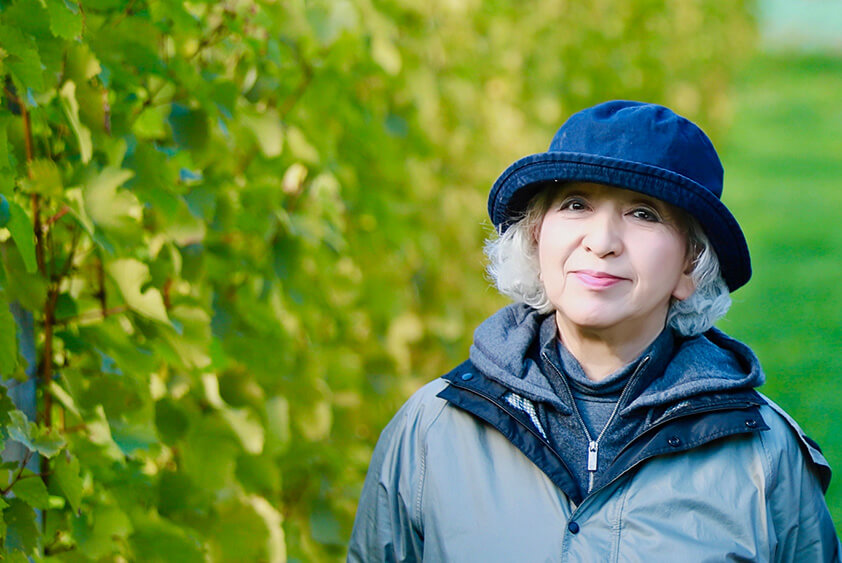
I became interested in winemaking because I was deeply impressed by a scene I saw in France when I traveled to Europe. There was a chateau, with vineyards around it, where they made wine. When you walk up the stairs, you see grapes being put in a jar. I thought, “What a dreamy and wonderful life!” I had always hoped that someday I would be able to live like this.
My late husband loved to garden and had secured a plot of land in Fujino, hoping to eventually create a garden. He prepared by buying stones and planting garden plants. That’s how the Park Golf course started. This one has been in operation for 30 years now. It was right after Park Golf was born in Tokachi, so we were one of the pioneers in Hokkaido.
We also started a restaurant called “Vigne” (* French for grape). I knew I liked grapes. I had a hope to produce something to eat rather than stones and trees. My father grew vegetables and I planted grapes there. We bought our first 250 grape seedlings, including some for wine, and that was the beginning. So there was a part of me that wanted to make wine at the end.
Park Golf was invented in 1983 in Makubetsu-cho, Tokachi region of Hokkaido as “golf that can be easily enjoyed in a park.” Unlike regular golf, it uses a single club and a larger ball. It can be played in sneakers or normal shoes, and is reasonably priced. There are many park golf enthusiasts throughout Japan, but Hokkaido has the largest number of courses. The Elk Forest Park Golf Club is located next to the Fujino Winery, and a beautifully maintained course can be seen from the second floor of the winery.
Restaurant Vigne is a restaurant adjacent to Sapporo Fujino Winery. It is an Italian restaurant where fresh pasta and pizza are popular. Of course, you can also drink wine from Fujino Winery.
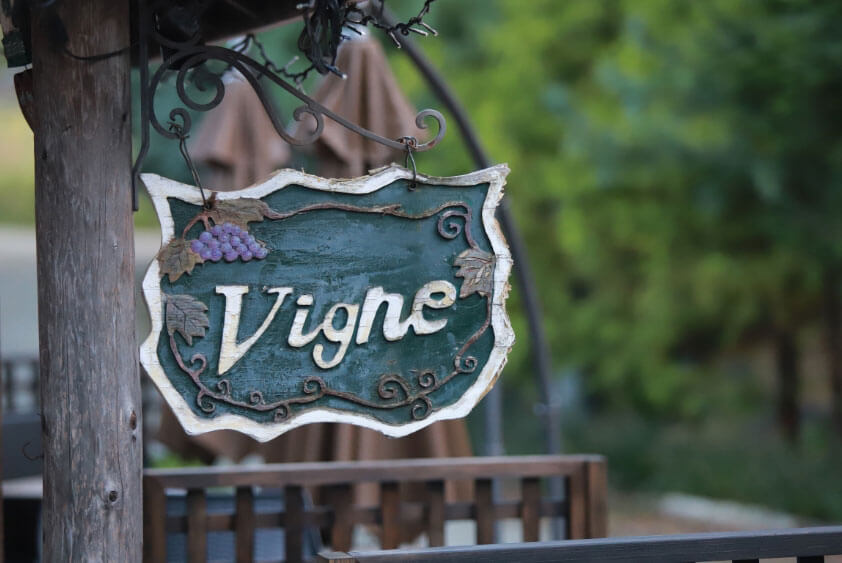
After about five years of planting grapes, we gradually started to pick them. Besides eating them raw, I tried making juice and jam at restaurants. As I did so, I began to think, “Maybe I can make wine from this,” and I began to study. I started asking farmers and going to the nearby winery to study. At that time, many people came to study there. I also took my sister, who was a housewife at the time, five years younger than me. Now we make wine together.
I was born and raised in a common family. Since my parents were running business, I watched them and experienced firsthand how busy and hard it was. We rarely ate meals together as in an ordinary family.
In my case, I didn’t want to make wine because I drink wine. I had a yearning for the wine making process itself, as I had seen in France. Rather than wanting to drink what was made, I thought the process of winemaking was wonderful.
The vineyards I saw in Europe were planted with roses. When the roses get sick, the grapes get sick too, so they want to find that out as soon as possible. When I saw such scenery, I thought again, “How wonderful!” I also like flowers, so I decided to plant some too in our vineyard. Maybe it is an assumption, or maybe I am easily influenced. But the hardest thing I did was making wine..
Grape belongs to the grape family of roses. They are susceptible to similar diseases, and roses are more delicate than grapes, so they are said to play a role in detecting diseases earlier. Nowadays, many of them are planted for the landscape of vineyards as a remnant of the past, rather than for that role.
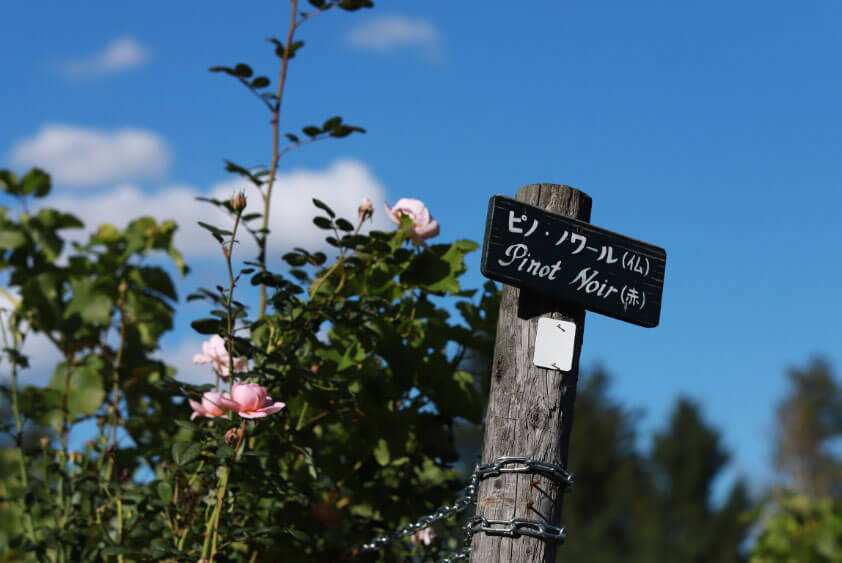
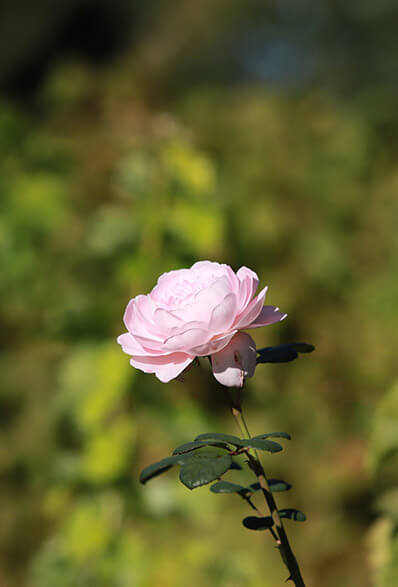
When I meet my friends, I tell them, “I’m thinking of making wine in the future”. I usually get a “Hmmm” response. But as I said it out loud, I thought that one day it would come true, and I had to be careful not to be a liar, so my will became more and more firm.
It was while studying at a nearby winery that I met Ryosuke Kondo. Because of this encounter, Fujino Winery is what it is today. I couldn’t have done it alone. The two of us went through a lot of trial and error, and it was not until I was 60 years old that we were able to obtain a license.
Ryosuke Kondo. Director of Fujino Winery. Kondo laid the foundation for Fujino Winery’s winemaking. Later, he became independent and now serves as the representative of “kondo vineyard” in Mikasa City, while also supervising Fujino Winery’s wines.
Then I next met Tadayuki Uramoto. He was a university student at the time and was at a wine tasting event in Sapporo. He looked like a junior high school student. I wondered if I was allowed to offer wine for him. I thought, “Wow, that’s unusual for a student, but he should be old enough to drink wine,” He tasted a lot of our wines. Then one day, he called me and said, “I want to learn how to make wine in your winery.”
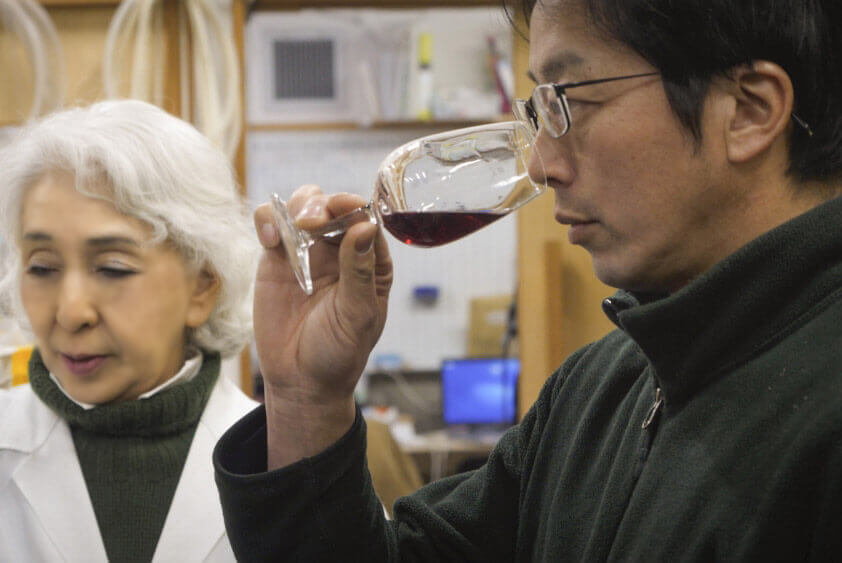
I asked Kondo-san to handle it for me. Kondo-san’s advice was, “You shouldn’t do it. Why would you make wine after graduating from a prestigious school? He knew firsthand how difficult the work was. He did a lot of convincing. My daughter happened to be listening and said, “I bet he would give up if he was told that much.”
Still undeterred, Uramoto went to France to study wine, and when he returned, he came back again. Kondo saw how serious he was and decided to teach him as a kind of apprentice. Uramoto stayed over and studied while tutoring Kondo’s children. I consider the encounter with these two men to be my greatest asset. Both of them are now taking good care of our wine.
Uramoto became also independent but still a member of Fujino Winery. I encourage winemakers to have their own domain and have a few wineries that they are involved in. Just like Bruce-san is doing in Hokkaido. I think it would be good if they have wines to supervise and collaborate here and there, rather than using their talents and wisdom only at their own places.
Mr. Bruce Gutlove. Runs “10R (Toaru) Winery” in Iwamizawa. Born in the U.S., he came to Japan as a result of his involvement with “Coco Farm Winery” in Tochigi Prefecture. He started making wines with wild yeast, which was unfamiliar in Japan at that time. There, he met Mr. Kondo, who had come to study winemaking at the same winery. Many Hokkaido wine producers have been influenced by Mr. Bruce Gutlove.
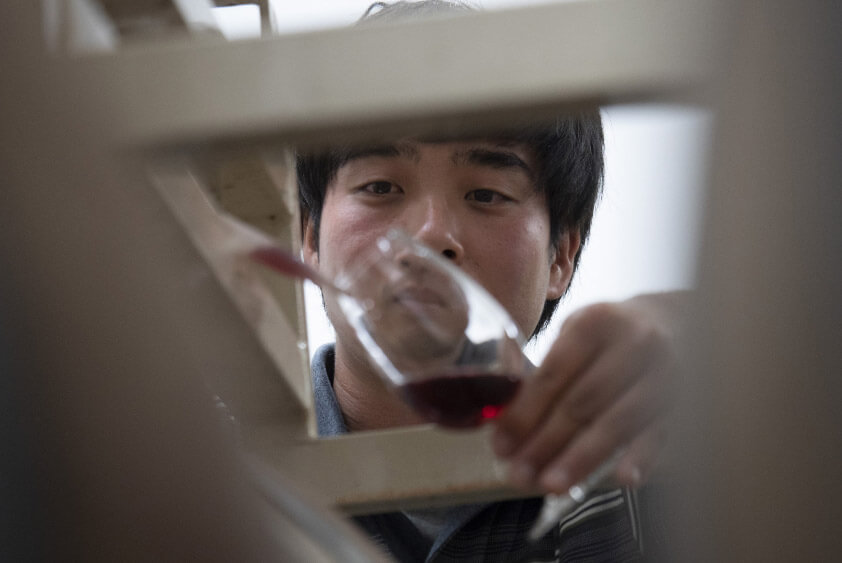
I have a desire to make wines that are loved, and I feel that meeting the two of you has made that a reality. I am not an aggressive worker, so I just feel happy when people enjoy drinking our wines. I prefer dry wines that go well with food. And I want to enjoy drinking them, that’s all I think about.
I think personality comes out in winemaking. Both Kondo and Uramoto are gentle and do not clash with others. The wines they make are really gentle. It would be strange to have to drink wine with nervousness, wouldn’t it? If you feel happy when you drink wine, I think that’s enough. I think both of them are worried about me, but I really appreciate it. I want them to stay until they got tired of being here.
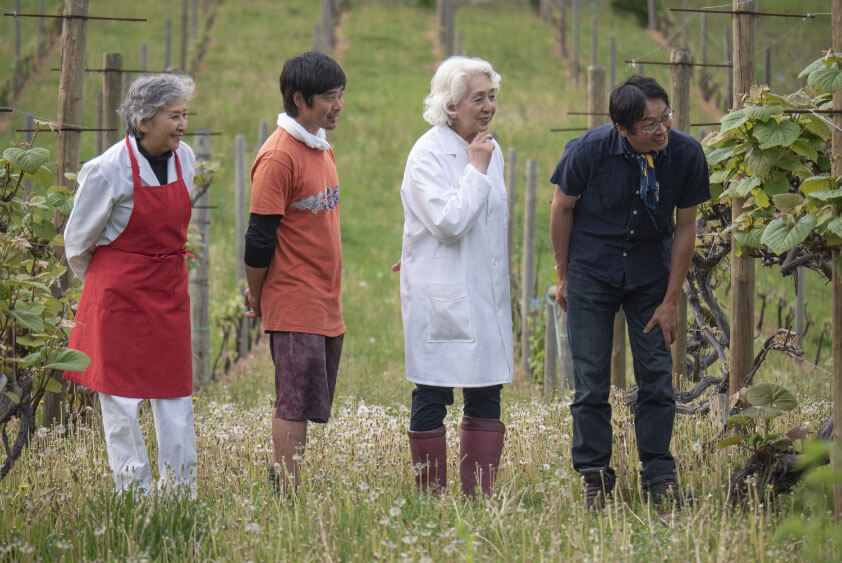
In a few years I will be 80 years old, and I hope to continue this work for as long as I live. Every year, all I can think about is how the grapes will grow, how the flowers will bloom, and how the vegetables will grow. And in the winter, when the fields are finished and it is quiet, I read books. In Hokkaido, winter is a good time to rest. I have been living like that all my life, and enjoy it. I wish I could live like this until the end of my life. Every year is the same thing over and over again, but it is not boring. I don’t think too much about expanding the scale of my business. Winter is coming soon. I have to make pickles now. It is kipper pickles. I make it every year.
Every day, I think about what I can do to make people happy, what I can say to them to make them understand, and so on. Now that I am older, I think that such things are important. When I was younger, I used to think that working in the fields was hard work, but recently I have come to think that there is nothing more enjoyable.
I hope someone with enthusiasm will take over. Winemaking is a long-term, 100-year business. My niece, who is in the first year of junior high school, has told me that when she grows up she wants to follow in her auntie’s footsteps and make wine. I felt glad to hear, but that’s decades away. I guess I look like I’m having fun. But, you know, I’m happy if they see me that way. I think it’s a happy thing to be able to give people around me a dream, What could be happier?
